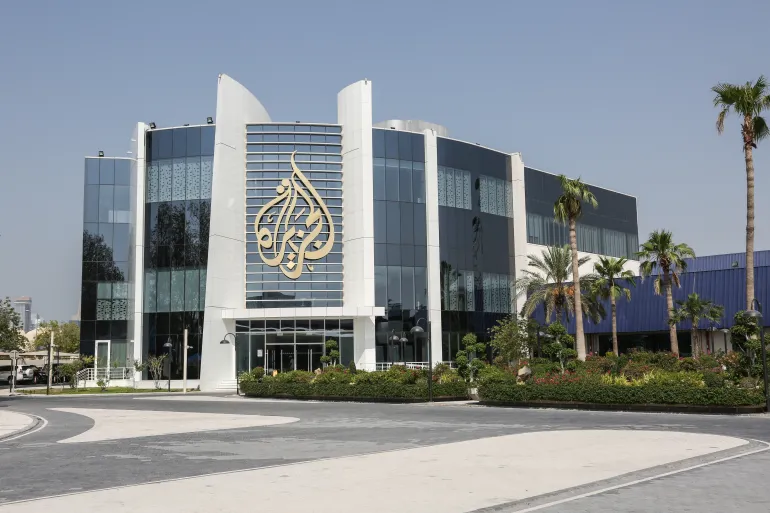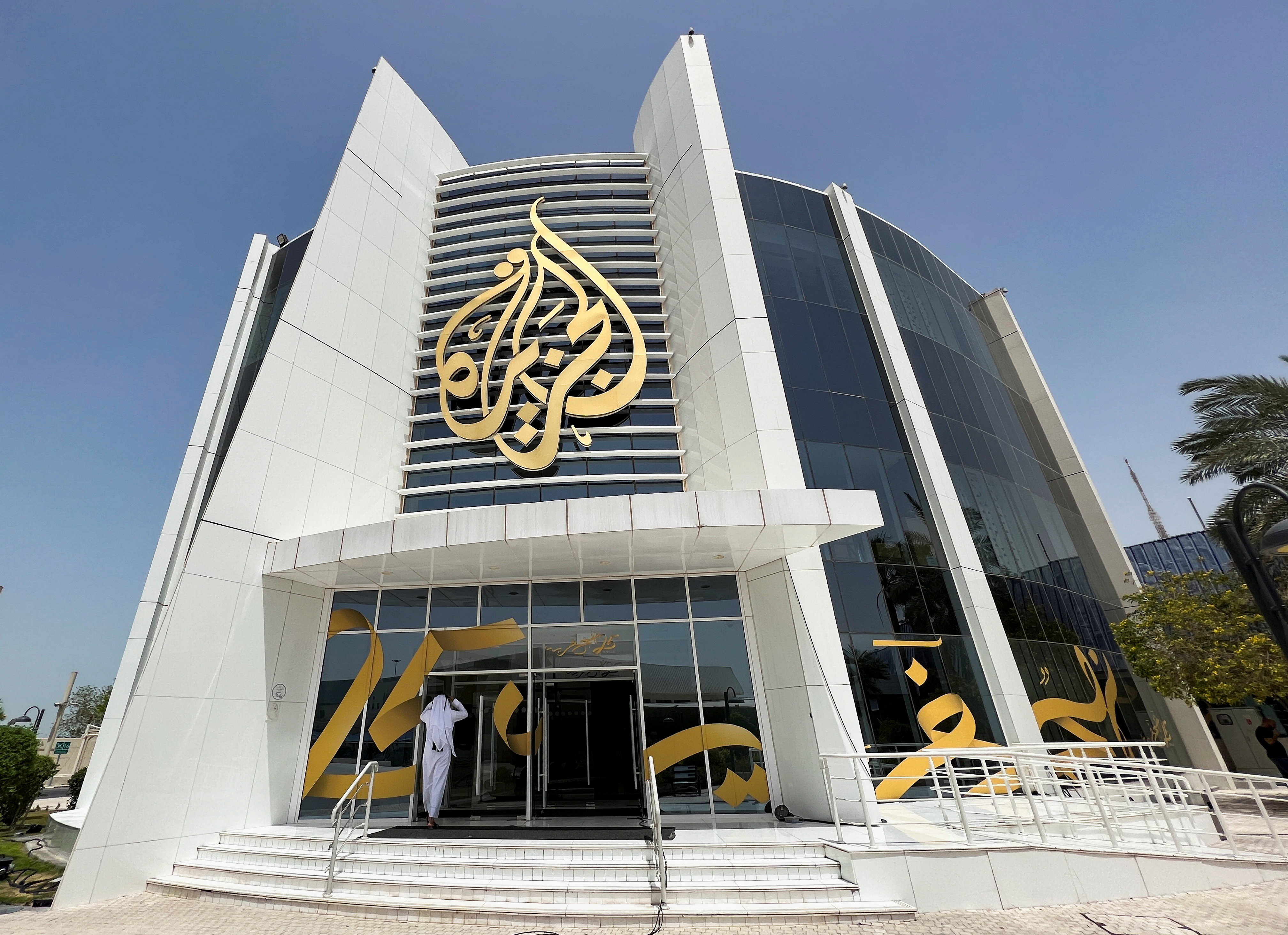
Explore the global impact of Al Jazeera, its history, evolution, and contributions to world media. Learn how this influential network has reshaped news coverage worldwide.
Introduction
Al Jazeera, founded in 1996 by the government of Qatar, has evolved into one of the world’s most influential media outlets. Initially launched as a satellite TV channel in Arabic, it quickly expanded its reach and influence globally. Al Jazeera’s reputation for providing alternative perspectives, especially on issues in the Middle East and North Africa, has made it an essential player in the world of journalism. Over the years, its focus on in-depth, investigative reporting, coupled with its commitment to covering underreported regions and voices, has shaped its identity as a global news powerhouse.
From its humble beginnings, Al Jazeera has redefined how news is delivered to millions of people around the world. The channel’s approach challenges the norms of traditional media, especially with its comprehensive and often critical coverage of political events and conflicts. It strives to provide a voice to the voiceless, a theme that has resonated with viewers from diverse backgrounds. But Al Jazeera is more than just a news organization—it represents a new era in broadcasting, one where the boundaries of global media are constantly being tested.
Qatar’s Vision for Media
Al Jazeera was born out of the vision of the Emir of Qatar, Sheikh Hamad bin Khalifa Al Thani, who sought to create a news network that would challenge the monopoly of Western media narratives. In 1996, he established the channel with the goal of providing an independent voice for the Arab world, offering an alternative to state-controlled media in the region. Unlike many other media outlets, Al Jazeera allowed its journalists to report freely, even if that meant criticizing governments or leaders.
Initially, Al Jazeera faced significant challenges, especially regarding its funding model and the political implications of its coverage. Its bold stance on sensitive issues, such as the conflicts in Afghanistan and Iraq, quickly garnered attention worldwide. The channel’s willingness to report on topics that other networks avoided, such as corruption and human rights abuses in the Arab world, set it apart from its competitors. This boldness would define Al Jazeera’s identity for years to come.
Al Jazeera’s Expansion into English
In 2006, Al Jazeera took a significant step by launching Al Jazeera English (AJE), a 24-hour English-language news network. This move marked the network’s intention to expand beyond its Arab-language audience and provide news coverage with a global perspective. Al Jazeera English was designed to appeal to an international audience by offering comprehensive reporting on global events, particularly those that are often overlooked by Western media.
Al Jazeera English’s approach is markedly different from many other international news networks. It does not adhere to the typical Western-centric viewpoints that dominate global media. Instead, AJE offers a platform for voices and stories from the Global South, the Middle East, and Africa, challenging the bias that many critics accuse Western outlets of perpetuating. By focusing on areas of the world that are often underrepresented, Al Jazeera English has cultivated a diverse and loyal audience.
Al Jazeera’s Approach to Investigative Journalism
One of the hallmarks of Al Jazeera’s media output is its commitment to investigative journalism. The network has produced countless reports that expose corruption, human rights abuses, and political scandals, even at the highest levels of government. Through its in-depth investigations, Al Jazeera has earned a reputation for providing comprehensive coverage that challenges the status quo.
Investigative journalism at Al Jazeera is often daring, and its reports have led to significant global discourse. For instance, in 2011, Al Jazeera’s coverage of the Arab Spring revolution in Tunisia, Egypt, and beyond played a crucial role in shaping public perception of the events. The network’s journalists were on the ground, documenting the protests and uprisings firsthand, often when other media outlets were not allowed access.
Through its investigative pieces, Al Jazeera has uncovered major stories that have had a lasting impact on world affairs. These stories range from environmental crises to corporate corruption, with the network consistently striving to provide the public with information that is both accurate and compelling. The investigative unit of Al Jazeera is widely regarded as one of the best in the world, and its reports have won numerous awards for excellence.
Al Jazeera’s Impact on the Middle East Media Landscape
Al Jazeera has had a profound impact on the media landscape in the Middle East. Prior to the launch of Al Jazeera, many media outlets in the region were controlled by governments or powerful elites. The network disrupted this control by offering independent and often critical journalism. It provided a platform for diverse viewpoints, especially in countries where press freedom was limited.
Al Jazeera’s reporting on the Iraq War, the Israeli-Palestinian conflict, and other regional issues has sparked debates across the Middle East. The network’s willingness to report on these sensitive issues, regardless of the political implications, has made it both a controversial and respected source of news. For many viewers in the region, Al Jazeera is seen as a rare bastion of free speech in an otherwise restrictive media environment.
By challenging the media status quo, Al Jazeera has encouraged greater press freedom in the region. It has influenced the development of independent media outlets in several Arab countries, fostering a more open and dynamic media environment. In many ways, Al Jazeera’s success has paved the way for other independent networks to emerge, contributing to a broader push for media reforms in the Arab world.
The Controversies Surrounding Al Jazeera
While Al Jazeera has earned praise for its bold and independent journalism, it has also faced significant criticism. Some governments, particularly in the Middle East, have accused Al Jazeera of bias and of promoting certain political ideologies. In particular, the network’s coverage of conflicts in the Middle East, such as the wars in Iraq and Syria, has drawn accusations of inciting unrest or supporting extremist groups.
The network’s coverage of the Arab Spring, which included support for pro-democracy movements, led to diplomatic tensions with several Arab states. Despite these challenges, Al Jazeera has maintained its editorial independence and continues to operate globally.
The network’s coverage of controversial issues, such as the Israeli-Palestinian conflict and the rise of ISIS, has also attracted criticism from various quarters. While some argue that Al Jazeera offers a more balanced perspective on these issues, others accuse the network of promoting a particular political agenda. Nevertheless, Al Jazeera’s editorial stance has always been one of presenting multiple viewpoints, even if that means challenging powerful entities.
Al Jazeera and Its Digital Transformation
In recent years, Al Jazeera has embraced the digital age, expanding its presence online through various platforms. Al Jazeera’s digital transformation has allowed it to reach new audiences, especially among younger viewers who consume news primarily through social media and digital platforms. The network’s websites, mobile apps, and social media channels are now vital tools for distributing content and engaging with audiences.
The digital arm of Al Jazeera has been instrumental in breaking news and providing real-time updates on global events. The network’s websites and social media accounts are among the most visited in the world, with millions of followers on platforms like Twitter, Facebook, and YouTube. Al Jazeera’s online presence has enabled it to reach a wider and more diverse audience, including people in regions where the network’s television channels are not available.
The network produces short-form video content, live streams of important events, and interactive graphics that help viewers better understand complex issues. This flexibility in content delivery has allowed Al Jazeera to stay ahead of the curve in an increasingly digital world.
Al Jazeera’s Commitment to Human Rights Reporting
Another key feature of Al Jazeera’s journalism is its commitment to human rights reporting. The network has long been a strong advocate for the protection of human rights, often shining a light on abuses that might otherwise go unnoticed. Through its coverage of issues like refugee crises, labor exploitation, and gender equality, Al Jazeera has raised awareness about some of the world’s most pressing human rights concerns.
Al Jazeera’s human rights reporting is comprehensive and investigative, often highlighting the stories of marginalized groups. Whether covering the plight of refugees fleeing conflict zones or exposing the conditions faced by migrant workers in the Gulf States, Al Jazeera’s reporting is both compassionate and critical. This commitment to human rights has earned the network recognition from various international organizations.
The network’s in-depth reporting on issues such as the rights of women in the Middle East, the struggles of indigenous peoples, and the fight against modern-day slavery has made it a leading voice in the global human rights movement. By giving a platform to those who are often unheard, Al Jazeera plays a vital role in promoting social justice and equality.
Al Jazeera’s Role in Covering Global Crises
In addition to its focus on the Middle East, Al Jazeera plays a crucial role in covering global crises. The network’s correspondents are often among the first to report from conflict zones, natural disaster sites, and areas of political upheaval. Al Jazeera’s reporters have been on the ground during major events like the 2004 Indian Ocean tsunami, the Haitian earthquake in 2010, and the Syrian civil war.
The network provides a unique perspective on the causes and consequences of global crises, focusing on the human impact of these events. Al Jazeera’s coverage of the migrant crisis in Europe, for instance, has been one of the most comprehensive and compassionate reports of this ongoing tragedy.
Al Jazeera’s coverage of global crises also extends to issues like climate change, terrorism, and pandemics. The network has consistently produced insightful reports on how these crises affect vulnerable populations, drawing attention to the need for international cooperation and action.
The Future of Al Jazeera
Looking ahead, Al Jazeera’s future seems as dynamic and influential as its past. The network has established itself as a major player in global media, and its ability to adapt to new media trends ensures its continued relevance. Al Jazeera’s embrace of digital media, along with its commitment to investigative journalism and human rights, positions it well for the challenges of the future.
As the global media landscape continues to evolve, Al Jazeera’s role in shaping public discourse will remain critical. With increasing competition from both traditional and new media outlets, Al Jazeera’s ability to maintain its editorial independence and offer diverse perspectives will be key to its success. Moreover, as global audiences continue to seek out alternative news sources, Al Jazeera’s appeal will only grow.
Ultimately, Al Jazeera’s commitment to providing accurate, balanced, and comprehensive news ensures that it will remain an important force in global media for years to come. Whether covering breaking news, investigating human rights abuses, or providing in-depth analysis of global events, Al Jazeera continues to serve as a vital resource for millions of people around the world.
Read also: What is BTC and Why It Matters in the Digital Economy